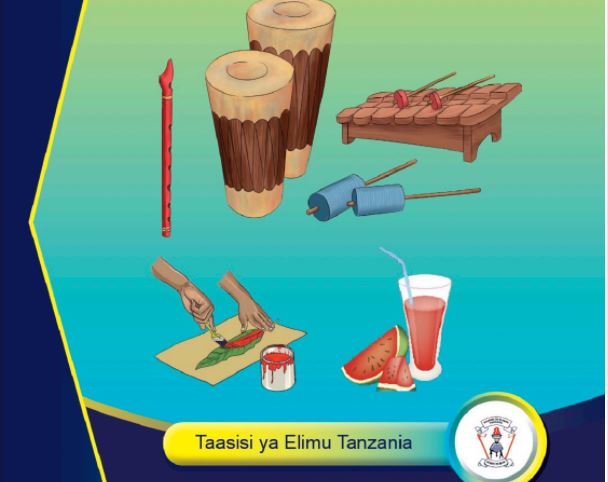NANDI RESISTANCE (1895) – 1905)
Refer to the resistance that was waged by the Nandi people in Kenya against the I.B.E.A.CO ( The British Colonial rule).
The Nandi resisted the British intrusion under their leader Koitalel Arap Samoei. The title of the Nandi leader was called “ Orkoiyot” Traditionally, the Nandi were pastoralists.
During the 19th c the Nandi became superior as they managed to win different battles with their neighboring societies such as the Maasai.
The Nandi grew more powerful as the Maasai power declined.
Therefore, during the advent of British Colonial rule, the Nandi resisted strongly against the British penetration.
They did not allow Europeans even to cross their territory. In 1895, they killed a British trader named West as he attempted to pass through their land.
This awakened the British to start fighting the Nandi.
REASONS FOR NANDI RESISTANCE
The Construction of railway / Introduction of the railway lines along the Nandi land.
The I.B.E.A.CO started to construct the railway line which was to pass through the Nandi’s land. This railway line made the Nandi to start resisting because the railway interfered their daily activities and culture.
Nandi resisted against British because British constructed a railway line on the Nandi land which they defined on it for farming and livestock keeping.
Land problem
The construction of the railway had impact on the Nandi people. The Nandi were removed from their land as the British wanted to create vacant land for whites settlement.
This made the Nandi not to continue with pastoral activities hence resistance against the British.
The Nandi’s pride.
The Nandi fought against the British because they believed that they were superior, strong and powerful socially, economically, politically, militarily and culturally hence did not want to be controlled.
The killing of the Nandi leader KOITALEL
Nandi’s resisted against the British following the killing of their leader known as Koitalel when he was called in the meeting of stopping the resistance.
The Nandi resistance
The Nandi believed that they were superior as they had experienced different wars with their neighbors and won them.
They believed that their culture was superior and they did not want their culture to be interfered by anybody. This made them to resist the British.
Kimnyole’s prophecy / The pressure from Kimnyoles prophecy
Kimnyole was an Ex – Orkoiyot. During his reign, he had prophesized that Nandi land would one day be ruled by the foreigners.
Also he added that one day there would come a long and big snake from Indian Ocean belching smoke and fire.
The snake turned to be the railway, and when the Nandi saw the construction of the railway they started to resist against the British.
The need to protect their political freedom
Koitale Arap Samoei organized the Nandi to resist against the British in order to restore and protect their political freedom. This is due to the fact that, the Nandi did not want to under British Colonial rule.
Although the Nandi resisted heavily the British colonial rule for about 10 years , but they were at last defeated.
It was in 1905 that the Nandi were defeated by the British.
Note
The British managed to defeat them after killing their leader Koitalel Arap Samoei (Orkoiyot).
The British Commander, Colonel Meinertzhagen visited the Nandi leaders as Orkoiyot came out to greet his visitors he was shot dead together with other leaders, From that moment, the Nandi were removed to the reserves
EFFECTS / IMPACTS OF NANDI RESISTANCE
1. The death of people. Nandi resistance led to the massive loss of people’s lives including leaders such as Koitalel, Orkolyot and other warriors.
2. British colonizing the Nandi land. The British defeated the Nandi during resistance as a result they took the Nandi land and made the Nandi to lost their sovereignty.
3. Destruction or damage of properties. The Nandi resistance led to the destroying of people’s properties including land, railways, telegraphic lines, killing of livestock, houses etc.
4. Hunger and famine. Nandi resistance led to the occurrence of hunger [food shortage] since resistance took many years and farms and cattle were killed during the fighting.
5. Migration of people. The Nandi resistance led to the restless of people because during and after the resistance people run away or migrated to other areas.
6. Land alienation. Nandi resistance led to many Nandi people to remain landless since after the resistance British took Nandi’s fertile land.
7. Nandi resistance led to the introduction of cheap labour, since those Nandi people had decided to be employed as cheap labours to the British settle farms.
8. Over grazing of some area. Nandi resistance led to the environmental degradation since the area which the Nandi pushed or migrated were not enough for cattle grazing.
QUESTIONS FOR GROUP DISCUSSION
1. “While some societies resisted the imposition of the colonial rule in Africa others appeared to collaborate”. Discuss this context giving concrete examples from East Africa. (NECTA-2000)
2. “African resistances against the imposition of colonial rule failed due to Africans’ technological backwardness”. Discuss (NECTA-2003)
3. What brought about the Chimurenga war in Southern Rhosedia in 1896-1897? (NECTA-2005)
4. With concrete examples show why the conflict between Africans and the whites during the colonial period was inevitable. (NECTA-2007)
5. Through their activities the missionaries become forerunners of colonialism. Justify this statement. (NECTA-2007)
6. The maji-maji war of 1905-1907 in Tanganyika remains a symbol of the African struggle against colonial rule. Justify (NECTA-2008)
7. Account for the Nandi resistance against their land occupation by the British. (NECTA-2009)
8. With examples from East or west Africa, show how company rule helped to create European colonization in Africa. (NECTA-2010)



































































I really like and appreciate your post.Really thank you! Fantastic.
Im obliged for the blog.Much thanks again. Awesome.
plaquenil 200mg cost buy plaquenil – hydroxychloroquine sulfate tab 200 mg
Great, thanks for sharing this post.Much thanks again. Want more.
I think this is a real great blog post.Really thank you! Really Great.
Im grateful for the blog.Really looking forward to read more. Cool.